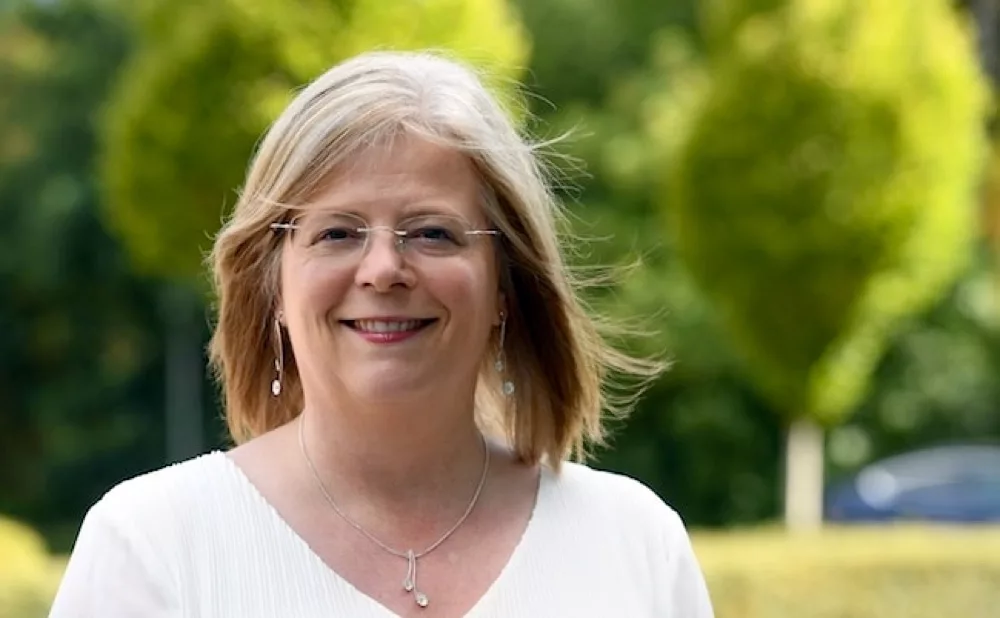On George Floyd’s birthday – signs of hope and battles to come for fairness and equality
In the immediate aftermath of the death of George Floyd and the outpouring of emotion and protest which followed it, I wrote an article expressing the College’s commitment to equality and diversity and our support for the Black Lives Matter movement. It provoked a great deal of comment, the vast majority of which was extremely supportive.
In the months that have followed I’ve noticed that we’re having so many more of those difficult conversations around race and anti-racism than ever before which must be a good thing. It feels as though a lot more people feel emboldened to speak up when faced with something they believe to be wrong.
George Floyd, had he lived, would have been marking his 47th birthday last Wednesday. What might have been a day of family joy will now be one of those difficult milestones to pass, an emotional storm to weather. That their lives have changed irrevocably is beyond doubt. More surprising perhaps is the degree to which the rest of us have been impacted by their tragedy.
In the June article I said it was important to not just use warm words in response to these events but that we each have a responsibility to take personal and institutional action according to our abilities and position. What has struck me in the weeks which followed is just how many people seem to be taking a similar view. This is a message of hope and not despair. Much remains to be done but I am hopeful that quietly, subtly, things might just be changing for the better.
When the statue of city benefactor and wealthy slave trader Edward Colston was unceremoniously dumped into the dock in Bristol it evoked a range of views from “a smack in the face for history,” through “I understand why but that’s not the way” to “good riddance, now what can we put in his place?” Whatever your feelings about the act it has sparked a national conversation. At the end of August, another piece of sculpture was moved; that of Sir Hans Sloane, the main benefactor of the British Museum whose glorious collection was largely financed by the profits of slavery. No watery grave for Sloane, just a quiet move from an unchallenged pedestal to a display cabinet nearby explaining both sides of a complex life. Such a nuanced approach would probably have been thought overly “politically correct” before George Floyd’s death. We have traditionally been encouraged to see so many events in our history as either clearly good or bad. This is a wonderful opportunity to avoid such absolutes in the future. We are, after all, in the midst of Black History Month; a niche created to celebrate those elements of our past, good and bad, often ignored in the mainstream. Our aim must be to so incorporate black history into that mainstream that such an annual commemoration becomes superfluous. Until that time George Floyd’s birthday will be another calendar reminder of what is wrong and what needs to change.

At Milton Keynes College we had already begun to try to address the issues of inequality.
In truth, we’ve always tried to do so but often haven’t known how to go about it or understood why initiatives have not had the desired or sustained impact. Earlier this year we started up a Friends and Allies Network (FANs) where we’ve brought together representatives from many different parts of the city’s diverse community to talk about making things better. The group has come together with open hearts and minds and is offering wonderful support and advice. We had also already begun the search for the College’s first EDI (Equality, diversity and inclusion) manager and that process has been both educational and rewarding. Our Friends and Allies helped by challenging the traditional way the advertisement and job description were written. This has led to a change in all new job descriptions and our approach to advertising and they’ve also helped by making the vacancy known to their networks. We ended up with thirty-five stunningly good applicants. Those who applied showed real passion for the role and a powerful sense of energy and momentum. Their applications overflowed with examples of concrete actions they’d been involved in and there is a real sense that the events of recent months have shifted that energy from describing theoretical approaches to change to sharing practical examples and strategies founded on pace and action.
It’s not just in education where I am seeing leadership thinking differently. I was recently at a meeting of Milton Keynes Business Leaders. The guest speaker was an investment consultant and he was describing the due diligence which goes into matching investors with potential businesses in which they could invest. When it came to questions, instead of finances the whole room wanted to ask about matching culture and values. How did he and his colleagues ensure mergers and acquisitions were based on shared values of inclusion and respect? These are key business people in our city and they are facing these challenges head on and publicly. Before George Floyd’s death many in the room might have wanted to ask such questions but the urgency of the situation in which we now find ourselves is empowering people to stand up for what is right. We are all learning and all only just beginning to appreciate what we can do to effect change for the better.
Of course, all these examples of growing awareness are set against the reality of a daily backdrop of videos on social media from routine and banal racial profiling through to the shocking taking of lives or the attack on Jacob Blake, shot seven times in the back in front of his children.
Everything changes. Everything stays the same.
The more that voices like those I’ve mentioned are raised everywhere from private conversations to public platforms the more automatically aware we will all become. There’s still so much to do and we must never stop driving that change towards a just and equal society. Let’s all make a noise for George Floyd’s birthday and every day until the sounds of protest are needed no more.
Julie Mills MBE, CEO & Group Principal, Milton Keynes College
